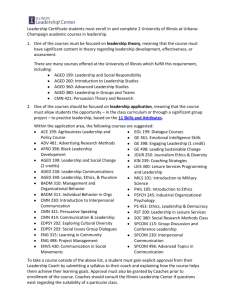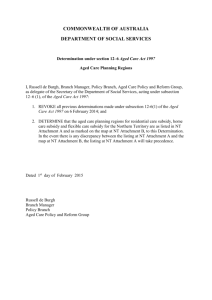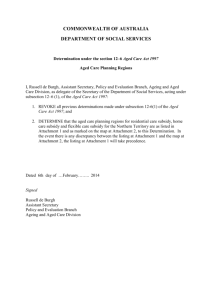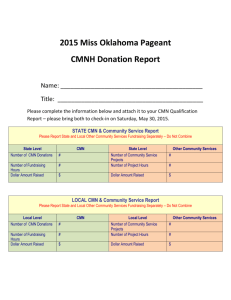Illinois Leadership® Certificate Program
advertisement
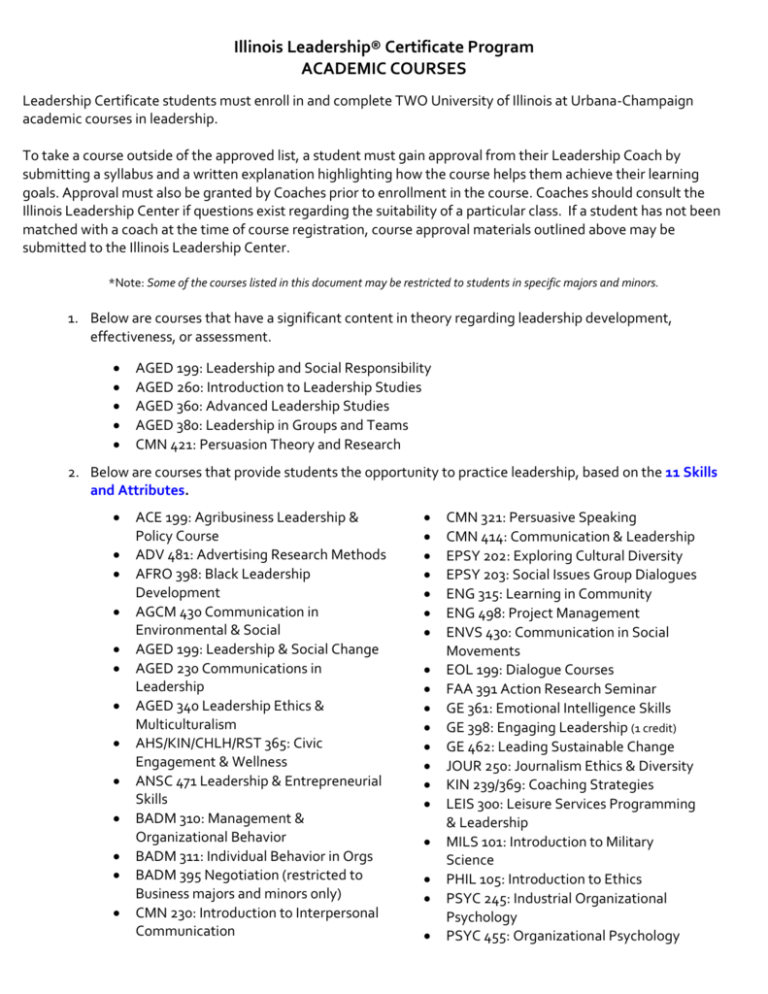
Illinois Leadership® Certificate Program ACADEMIC COURSES Leadership Certificate students must enroll in and complete TWO University of Illinois at Urbana-Champaign academic courses in leadership. To take a course outside of the approved list, a student must gain approval from their Leadership Coach by submitting a syllabus and a written explanation highlighting how the course helps them achieve their learning goals. Approval must also be granted by Coaches prior to enrollment in the course. Coaches should consult the Illinois Leadership Center if questions exist regarding the suitability of a particular class. If a student has not been matched with a coach at the time of course registration, course approval materials outlined above may be submitted to the Illinois Leadership Center. *Note: Some of the courses listed in this document may be restricted to students in specific majors and minors. 1. Below are courses that have a significant content in theory regarding leadership development, effectiveness, or assessment. AGED 199: Leadership and Social Responsibility AGED 260: Introduction to Leadership Studies AGED 360: Advanced Leadership Studies AGED 380: Leadership in Groups and Teams CMN 421: Persuasion Theory and Research 2. Below are courses that provide students the opportunity to practice leadership, based on the 11 Skills and Attributes. ACE 199: Agribusiness Leadership & Policy Course ADV 481: Advertising Research Methods AFRO 398: Black Leadership Development AGCM 430 Communication in Environmental & Social AGED 199: Leadership & Social Change AGED 230 Communications in Leadership AGED 340 Leadership Ethics & Multiculturalism AHS/KIN/CHLH/RST 365: Civic Engagement & Wellness ANSC 471 Leadership & Entrepreneurial Skills BADM 310: Management & Organizational Behavior BADM 311: Individual Behavior in Orgs BADM 395 Negotiation (restricted to Business majors and minors only) CMN 230: Introduction to Interpersonal Communication CMN 321: Persuasive Speaking CMN 414: Communication & Leadership EPSY 202: Exploring Cultural Diversity EPSY 203: Social Issues Group Dialogues ENG 315: Learning in Community ENG 498: Project Management ENVS 430: Communication in Social Movements EOL 199: Dialogue Courses FAA 391 Action Research Seminar GE 361: Emotional Intelligence Skills GE 398: Engaging Leadership (1 credit) GE 462: Leading Sustainable Change JOUR 250: Journalism Ethics & Diversity KIN 239/369: Coaching Strategies LEIS 300: Leisure Services Programming & Leadership MILS 101: Introduction to Military Science PHIL 105: Introduction to Ethics PSYC 245: Industrial Organizational Psychology PSYC 455: Organizational Psychology PS 453: Ethics, Leadership & Democracy RST 200: Leadership in Leisure Services SOC 380: Social Research Methods Class SOCW 321 Social Entrepreneurship & Social Change CMN 113: Group Discussion & Conference Leadership CMN 230: Interpersonal Communication CMN 496: Advanced Topics in Communication Although every course listed above provides excellent opportunities for leadership learning, it is recommended that students take one of these core courses offered. COURSE HOURS AGED 199 Leadership and Social Responsibility 3 AGED 260 Introduction to Leadership Studies 3 AGED 360 Advanced Leadership Studies AGED 380 Leadership in Groups and Teams 3 3 GE 361 Emotional Intelligence Skills 3 GE 398 Engaging Leaders 1 GE 498 Leading Sustainable Change 3 DESCRIPTION Students enrolled in this course will consider significant historical contexts for the practice of leadership, and study the varying ways that power and societal privilege have contributed not only to the current Westernized conceptualization of “leadership” but to the concept of social justice. Study of leadership theories and their application to the development of leadership skills. Students develop a personal philosophy of leadership, prepare a development plan for enhancing leadership skills during their collegiate experience and begin a portfolio to record their leadership growth. Topics concerning diversity, ethics, and leadership/followership roles are explored. This interdisciplinary course is designed as a capstone academic experience for students to study the practice of leadership in personal, team organizational, and community contexts. Emphasis is placed on transitional development of leadership skills including networking, mentoring, and developing others. Explores the concept of leadership applied explicitly to sustainable team environments. Reviews team development concepts & the role leaders play within them. This course emphasizes the importance and the validity of our emotions in improving your self-awareness, self-management, and relationships with others you work with in organization. As part of this course you take the ECI-U assessment, develop a personal mission statement & personal development plan, and begin a portfolio of your personal growth. This course explores leadership from the perspective of leaders in various types of settings and organizations. You examine what is common among leaders in different settings as well as key differences. This course is based on the framework provided by Kouzes and Posner in their book, “The Leadership Challenge.” As part of this course you will be asked to write your own personal philosophy of leadership. This course is offered only in the Fall semester. Students enhance their ability to lead, manage and adapt to sustainable change in this class. Students will initiate and conduct a change project during the semester to apply concepts from the course to a real situation.
